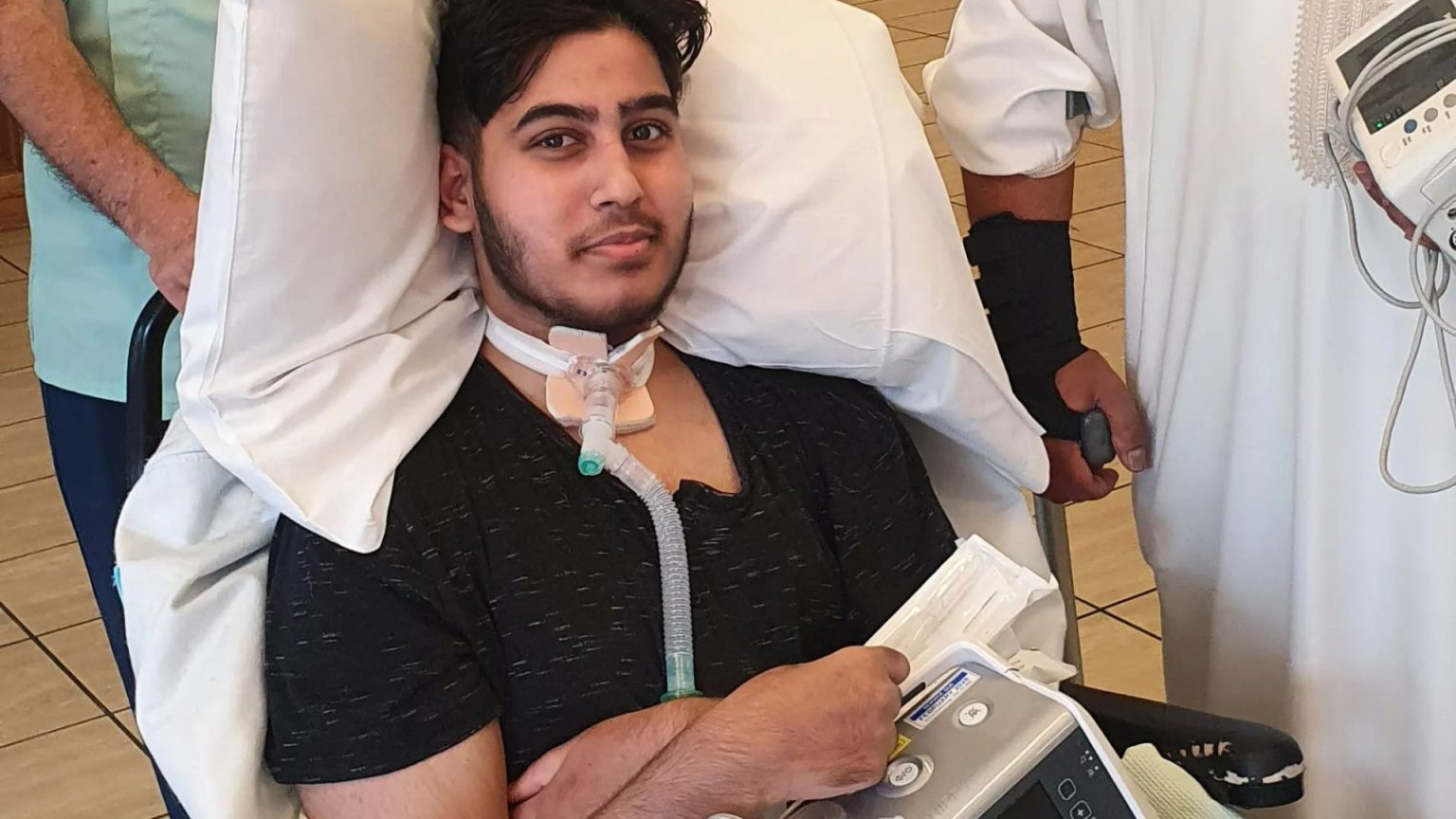Ayuub Al-Asad, a 15-year-old schoolboy from Rochdale, Manchester, experienced a sudden and devastating medical crisis that drastically altered his life. It began with seemingly innocuous stomach pains, but quickly escalated to include burning sensations in his arms and a pins-and-needles feeling in his legs, which eventually became heavy and numb. He cried out in agony, telling his mother, Hena, that his arms felt like they were on fire. Within hours, Ayuub collapsed in the family’s living room, prompting his distraught mother to rush him to a local hospital. The situation deteriorated rapidly, necessitating his transfer to the Royal Manchester Children’s Hospital within 24 hours.
At the children’s hospital, Ayuub’s condition remained critical. He was admitted to the Intensive Care Unit, where he remained sedated and reliant on a ventilator for three agonizing months. Doctors eventually diagnosed him with acute flaccid myelitis (AFM), a rare and serious neurological condition affecting the spinal cord. The diagnosis brought with it the devastating news that Ayuub was paralyzed from the neck down, leaving him unable to control his bladder or bowel, and with a paralyzed left diaphragm that caused the collapse of his left lung. Facing this unimaginable reality, Ayuub’s family began a harrowing journey filled with uncertainty and immense challenges.
The impact of Ayuub’s paralysis was both physically and emotionally profound. His mother, Hena, described the ordeal as “traumatic” and “devastating” for both Ayuub and their entire family. Ayuub expressed his longing to walk again, a heartbreaking testament to the limitations imposed by his condition. The family desperately needed support and guidance to navigate the complexities of Ayuub’s care. Fortunately, they connected with the Spinal Injuries Association, a charity offering crucial support to individuals and families affected by spinal cord injuries.
The Spinal Injuries Association proved to be a lifeline for the Al-Asad family. Carol Adcock, a specialist nurse with the organization, provided invaluable assistance and became a source of strength for Hena. Carol’s expertise and compassionate support helped the family understand Ayuub’s condition and navigate the challenges of his care. Hena described Carol as “a breath of fresh air” who brought a sense of hope and empowerment to their lives. With this renewed sense of purpose, the family embarked on the arduous road to rehabilitation.
With the support of the Spinal Injuries Association and dedicated medical professionals, Ayuub began intensive physiotherapy sessions. His determination and resilience shone through as he made remarkable progress. He regained the ability to sit up independently, dress himself, and navigate his wheelchair. While still facing significant hurdles, Ayuub remained optimistic about the future. He expressed his eagerness to attend a specialized care facility at Stoke Mandeville, where he planned to continue his rehabilitation and work towards his educational goals. He set his sights on returning to school to complete his GCSEs and eventually enroll in college.
Ayuub’s story highlights the devastating impact of acute flaccid myelitis and the importance of organizations like the Spinal Injuries Association. AFM, a rare but serious condition, causes sudden muscle weakness and paralysis, often affecting children. Initial symptoms can include asymmetrical weakness in the limbs, along with a loss of muscle tone and reflexes. In severe cases, the weakness can affect the diaphragm, leading to respiratory difficulties and the need for ventilation. The Spinal Injuries Association plays a vital role in providing support, resources, and advocacy for individuals and families affected by spinal cord injuries, emphasizing the critical need for awareness and understanding of this challenging condition.











